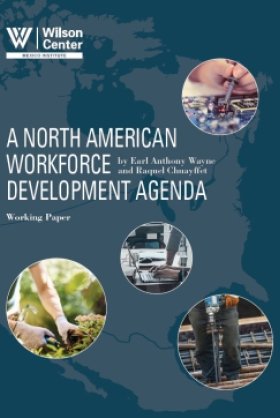A North American Workforce Development Agenda


North America faces an alarming skills gap that negatively affects the international competitiveness and economic performance of all three countries. Simultaneously, the United States, Canada, and Mexico are facing economic and technological transformations. This set of challenges calls for priority investment in the development of the continent’s workforces. North America’s highly integrated production and commercial networks mean that more regional collaboration is essential. If done well, such collaboration is an opportunity to create jobs, achieve higher levels of productivity, and strengthen the competitiveness of the region vis-a-vis China and other global economic powers.
North America would benefit greatly from a senior level trilateral taskforce or steering group, established by the three governments, which would include public-private, federal-sub-federal working groups to develop specific proposals on workforce development issues. The task force and working groups could be usefully incorporated into a modernized North American Free Trade Agreement (NAFTA) as part of the chapter on competitiveness. In this paper, we recommend focusing the North American Workforce Development Agenda on the following areas: apprenticeships and other types of work-based learning and technical education, credentials, data collection and transparency, and best practices to approach/prepare for the onslaught of new technology.
A North American Workforce Development Agenda by The Wilson Center on Scribd
Authors

Former Career Ambassador to Afghanistan, Argentina, and Mexico; Distinguished Diplomat in Residence, School of International Service, American University


Mexico Institute
The Mexico Institute seeks to improve understanding, communication, and cooperation between Mexico and the United States by promoting original research, encouraging public discussion, and proposing policy options for enhancing the bilateral relationship. A binational Advisory Board, chaired by Luis Téllez and Earl Anthony Wayne, oversees the work of the Mexico Institute. Read more

Explore More
Browse Insights & Analysis
The North American Workforce Development Initiative

360° View of How Southeast Asia Can Attract More FDI in Chips and AI

